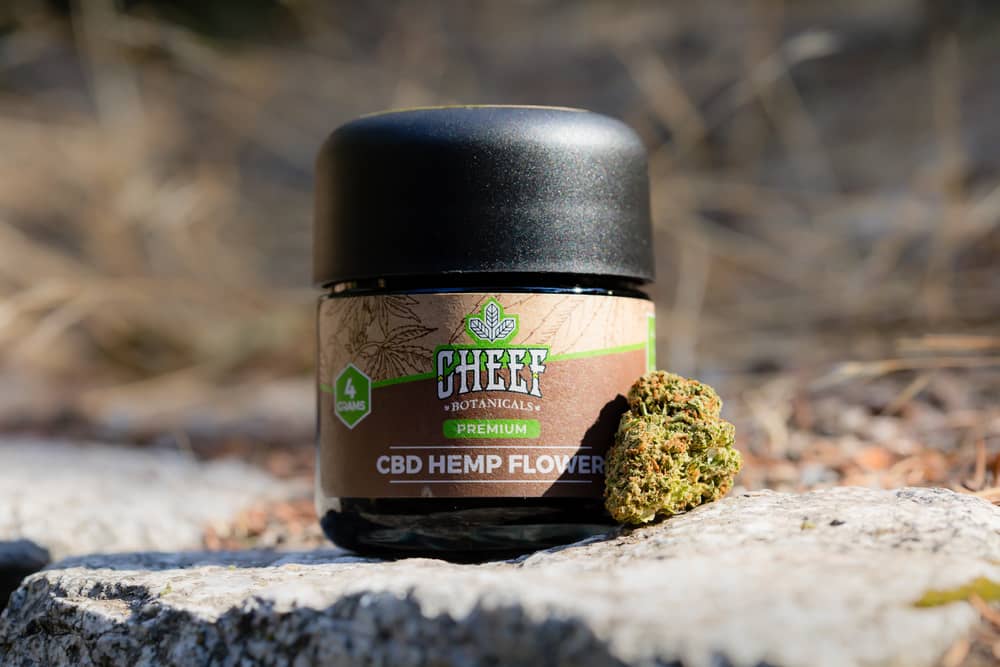Cannabinoid Receptors [How They Work to Help CBD Do Its Thing]
The endocannabinoid system (ECS) is a complex and active network of cells. It acts as a bridge between the body and mind. Endocannabinoid signaling occurs between cannabinoid receptors and the rest of our body, including cells, organ systems, and hormone-releasing glands. This can cause changes in our mood, concentration, digestion processes, stress levels, and more. Our body is a fascinating mini-world of wonder, and CBD plays a part in how that world turns.
Ever wonder how CBD does its thing? A large part of why CBD affects you is thanks to the ECS, and cannabinoid receptors found all over your body. What exactly does that mean? Let’s find out!
What Are Cannabinoids?
Hemp plants contain compounds that help give CBD flower their unique properties; cannabinoids are some of those compounds. Phytocannabinoids are cannabinoids that develop specifically in plants and influence holistic and wellness benefits (including CBD and THC). Your body also produces its own cannabinoids called endocannabinoids, or endogenous cannabinoids. The cannabinoids produced by your body are created all over — in the muscles, brain, and circulating cells — and influence different bodily functions. They can affect digestive processes, mood, stress levels, and other vital operations.
Endocannabinoids
Endocannabinoids are made naturally by the human body. They are in organs, blood, and tissues and operate when they bind with receptors like CB 1 and CB 2. They operate differently than other neurotransmitters, which are usually produced and stored until the body needs them, and they are released. Endocannabinoids are formed as needed in the parts of the body they are required. Their major role is to regulate the production of dopamine, serotonin, and other hormonal and chemical manufacturing.
Our body produces its own cannabinoids to interact with our ECS. This system is was first identified in the 1990s by researchers studying the effects of THC, and more of its story has unfolded over the years. So far, what we know is that it plays a role in physical and cognitive function.
Phytocannabinoids
There are over 100 phytocannabinoids in the hemp plant. These molecules form in the trichomes of the plant and can affect the body in the same way endogenous cannabinoids do. While there are many kinds of cannabinoids in existence, it is primarily the cannabidiol (CBD) parts of the hemp plant that bind to receptors in the body to accomplish these tasks. Consuming hemp and CBD products introduce these phytocannabinoids into the body, manipulating and positively impacting your well-being.
THC is another phytocannabinoid that affects the body. This is the cannabinoid in marijuana and cannabis plants that causes you to get high. THC has a strong influence on the body and can have intoxicating effects, whereas CBD has a milder effect.
Related: History of CBD: How Cannabidiol Became What It Is Today

What Are Cannabinoid Receptors?
Cannabinoid receptors are located throughout the body and are part of the ECS, which is involved in a variety of physiological processes. For the body to respond to the various cannabinoids found both within and outside of the body, there needs to be a reception system in place. Cannabinoids bind to cannabinoid receptors which send out signals to the brain that trigger reactions in the body. There are two kinds of “G-protein-coupled receptors” (GPCRs) that mediate our senses in response to cannabinoids, called CB 1 and CB 2 receptors. Technical, we know. But bear with us! We’ll do our best to explain everything below.
CB 1 Receptors
CB 1 receptors are located mainly in the neurons in the central nervous system, which consists of the brain and spinal cord, but are also located to a lesser extent all over the rest of the body. This type of cannabinoid receptor is restricted to sites of synaptic activity, meaning they usually have the biggest impact on nervous system functions. There are many CB 1 receptors clustered in the parts of the brain related to memory and attention, motor function, blood pressure, and sleep.
A CB 1 receptor is usually responsible for most mood, and cognitive changes felt when consuming CBD. THC binds strongly to CB 1 receptors, which is why cannabis has such a powerful effect on the brain.
CB 2 Receptors
The second type of receptor, CB 2, is usually expressed in the peripheral nervous system (the nerves located outside the brain and spinal cord) and other organ systems related to immune function. Cannabinoids bind to these receptors to trigger the activity of immune cells affecting immune responses like swelling. Some cannabinoids may be able to reduce swelling responses and increase reaction time to illness and injury.
Why Do We Have Cannabinoid Receptors?
We have cannabinoid receptors because the human body creates its own version of cannabis compounds called endocannabinoids. It’s only natural that we would need receptors for our bodies to respond to these compounds. These receptors are a part of our ECS as a way to regulate and maintain homeostasis. Cannabinoids bind directly or indirectly to instruct different receptors to perform different functions.
What Is The Endocannabinoid System?
The ECS performs different jobs in each part of the body, but the goal is always the same: homeostasis, which is the maintenance of a stable internal environment despite changes in the external environment. We have many body systems to help us live: the circulatory system helps pump blood to the rest of our bodies by distributing nutrients and oxygen, and the muscular system helps us move! Like these systems, the ECS serves an important purpose by telling our body when and where we need certain hormones and neural activity.
The endocannabinoid system (pronounced endoh-can-nah-bih-noid) recently came to light in the early 1990s, so its functions and purpose are still being studied. We know so far that every mammal has an ECS that responds to the endogenous cannabinoids produced in our bodies. Phytocannabinoids also bind to the receptors in the ECS, meaning that CBD and other hemp products can influence this system and influence our bodies.
What is the Purpose of the Endocannabinoid System?
The ECS plays a very important role in the human body for our survival. So far, research has linked the ECS to affecting the following processes that all contribute to homeostasis:
- Appetite and digestion processes
- Chronic pain
- Immune system responses
- Mood
- Learning and memory capability
- Movement and motor function
- Sleep cycle
- The cardiovascular system
- Tissue formation, including muscle and bone growth
- Reproductive function and fertility
- Stress
- Skin function and health
- Nerve function
All of the above help your body stay stable and stay healthy during times of illness or injury. If you get a fever or break a bone, your homeostasis is off balance. The ECS kicks in to help return things to normal and stay at peak performance!

What is Endocannabinoid Deficiency?
There is a theory that your body can have a deficiency in the number of endocannabinoids it produces, though not enough research has been conducted to confirm this. This suggests that low endocannabinoid levels or a misfunction of ECS processes can contribute to the development of some health conditions. Researchers have been looking into the possibility that this deficiency is why some people develop issues like chronic migraines, fibromyalgia, and irritable bowel syndrome.
If proven true, this means that there is a practical use for CBD in those sufferings from those conditions!
Does CBD Bind to Cannabinoid Receptors?
Although cannabinoids from hemp plant products can bind with our body’s ECS receptors, they do not fit exactly. However, they have an indirect effect on the body. CBD molecules can prevent the breakdown of endocannabinoids produced in the body, which prolongs their effects. Other research may suggest that CBD is able to bind to a receptor that hasn’t been discovered yet.
However, they interact, CBD can affect the body. It can help with discomfort, nausea, and other uncomfortable symptoms.
Does THC Bind to Cannabinoid Receptors?
Like CBD, THC influences cannabinoid receptors. THC can bind to both CB 1 and CB 2 receptors, which, as we know, regulates how the immune and central nervous systems work. This is why marijuana and other cannabis products with high THC content cause strong psychoactive and physical effects. While CBD products have a small amount of THC (up to 0.3%), this amount has a minimal effect on the body and will not cause a high like marijuana does.
THC interacts with cannabinoid receptors as endocannabinoids do. This is why there is a stronger likelihood of having negative side effects like paranoia occur when using marijuana.
How Does CBD Interact With Cannabinoid Receptors?
The main way CBD interacts with cannabinoid receptors is by helping increase the amount of endocannabinoids in the body. Cannabinoid receptors respond to three kinds of “ligands,” which is a fancy term for molecules that attach to other molecules. The three kinds of cannabinoid ligands are endocannabinoids, phytocannabinoids, and synthetic cannabinoids that are artificially made and mimic natural cannabinoids (like synthetic marijuana called Spice).
Cannabinoid receptors respond to the chemical anandamide, which cannabis products mimic. So although CBD does not directly attach to receptors, it can still influence them by producing this chemical. Once the anandamide signals the receptor, it activates the brain and immune system neurons that affect the mind and body.
Final Thoughts – Cannabinoid Receptors
Every mammal on earth has an ECS. This vital system helps regulate processes in the body so that it can maintain homeostasis. Our bodies generate endocannabinoids which react with the cannabinoid receptors in the ECS to help maintain that equilibrium. CBD from plants like hemp can also influence this system in indirect ways. When you consume a CBD product, it influences different body processes related to mood, stress, digestion, cognition, and mobility, which can positively impact your mind and body. We are still learning about the ECS and cannabinoid receptors, but we know they play an important role in our health.
To learn more about CBD check out these resources.





